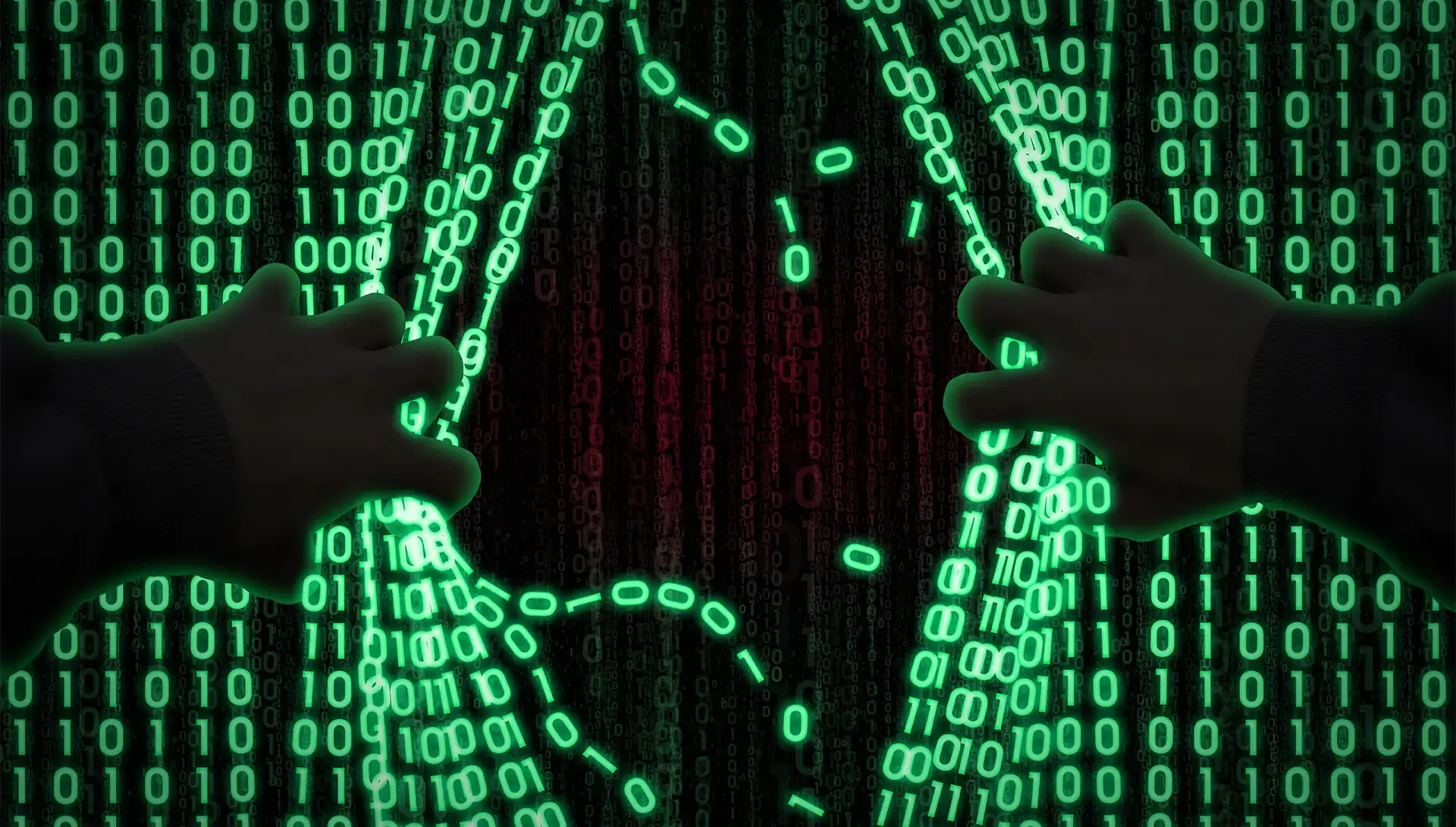Table of contents
- Who are hackers?
- How to become a hacker
- Understanding cyber security
- Ethics and legality
The term hacker is often associated with images of individuals who hack computer systems for malicious purposes. However, the world of hackers is much broader and more complex. Hackers can be divided into several categories depending on their intentions and the techniques they use, including:
- White Hat
- Grey Hat
- Black Hat
In this mini guide, we will explore how to become a hacker, the hacker courses available, and delve into who hackers really are.
Who are hackers?
Hackers are experts in computer systems who use their skills to explore, modify, and often improve the security of web applications and security systems. They can be divided into three main categories:
- White Hat
Also known as ethical hackers, these professionals use their skills to identify and resolve vulnerabilities in computer systems, contributing to cyber security. - Grey Hat
These hackers operate in a grey area, using hacking techniques for purposes that are neither entirely legal nor illegal. They may be motivated by the desire to improve security without authorization or to gain a reward. - Black Hat
Also known as cybercriminals, these individuals use their skills for malicious purposes such as hacking attacks and stealing sensitive information, including credit card numbers.
How to become a hacker
Becoming a hacker requires dedication, study, and constant practice. Below are the fundamental steps to embark on this career.
Studying computer systems
To become a hacker, it is essential to have a solid understanding of computer systems. This includes knowledge of operating systems, networks, and programming languages. Familiarizing yourself with systems like Linux, Windows, and macOS is a good starting point. Additionally, learning languages such as Python, C, and JavaScript can be very useful.
Enrolling in a hacking course
Taking a hacking course can provide structured and in-depth training on hacking techniques. There are numerous online and offline courses that offer certifications in cyber security and ethical hacking. Some of the most renowned courses include:
- Certified Ethical Hacker (CEH)
Offered by EC-Council, this course covers a wide range of hacking techniques and security measures. - Offensive Security Certified Professional (OSCP)
A hands-on course that tests your skills through penetration testing exercises. - CompTIA Security+
A foundational certification in information security that provides an overview of the skills needed to get started.
Developing your skills
Developing your skills is essential to becoming a competent hacker capable of tackling the complex challenges that the field of cyber security presents. Here are some crucial aspects and strategies to improve your hacking abilities:
Practice platforms
One of the best ways to develop your hacking skills is through practice platforms that offer safe and legal environments to test your skills. Here are some of the most renowned:
- Hack The Box
This platform provides a wide range of virtual machines to compromise. The challenges range from simple to extremely complex, allowing you to gradually hone your skills. - TryHackMe
Another excellent resource for anyone wanting to learn hacking in a guided way. It offers structured learning paths that cover various aspects of cyber security from basics to advanced techniques. - VulnHub
Here you can download vulnerable virtual machines and test your skills in a local environment. It’s a great resource for those who prefer to work offline.
Participating in Capture The Flag (CTF) competitions
Capture The Flag competitions are events where participants solve a series of cyber security challenges to obtain “flags” (small pieces of text that prove a challenge has been solved). Participating in these competitions can significantly improve your skills. Here are some examples of CTFs:
- DEF CON CTF
One of the most prestigious and challenging events in the CTF world, organized during the DEF CON conference. - CTFtime
A platform that lists and ranks CTF competitions worldwide, allowing you to participate in regular events and continuously improve your skills.
Contributing to open-source projects
Contributing to open-source projects related to cyber security is an excellent way to put into practice what you’ve learned and collaborate with other experts in the field. Some popular projects include:
- Metasploit Framework
A penetration testing platform used to develop and execute exploits against target machines. - OWASP (Open Web Application Security Project)
An organization that works to improve software security. Participating in their projects can help you understand web application vulnerabilities.

Personal hacking labs
Creating a personal hacking lab allows you to experiment in a controlled environment. You can configure virtual machines with various operating system and software configurations to simulate different attack scenarios. Useful tools for your lab can include:
- VirtualBox or VMware
Software to create and manage virtual machines. - Kali Linux
A Linux distribution dedicated to penetration testing and cyber security that includes a wide range of pre-installed tools. - Docker
Useful for quickly running containers that simulate specific environments or vulnerable applications.
Reading and following blogs and publications
Staying updated on the latest technical trends and vulnerabilities is crucial in the field of cyber security. Following blogs, reading publications, and participating in forums can provide new perspectives and knowledge. Some recommended resources include:
- Krebs on Security
A blog run by Brian Krebs, a well-known investigative journalist specializing in cyber security. - Schneier on Security
The blog of Bruce Schneier, a world-renowned security expert. - Reddit
Subreddits like r/netsec and r/hacking offer active discussions and up-to-date resources on cyber security.
Networking and communities
Being part of a hacking community can offer support, advice, and learning opportunities. Attending conferences, meetups, and online groups can help you connect with other professionals in the field. Some popular conferences and communities include:
- DEF CON
One of the largest and oldest hacking conferences in the world, where security experts and hackers of all levels meet. - Black Hat
A cyber security conference that offers both advanced technical training and presentations on the latest trends and discoveries in the field. - OWASP Chapters
Local groups that organize regular meetings to discuss web application security.
Understanding cyber security
Knowledge of cyber security is crucial for a hacker. This includes understanding hacking techniques and security countermeasures. Studying common vulnerabilities such as SQL injection, cross-site scripting (XSS), and buffer overflow can help develop strategies to protect security systems.
Ethics and legality
Becoming an ethical hacker requires a strong sense of ethics and an understanding of the laws related to cyber security. Ethical hackers must obtain permission before performing penetration tests or other hacking activities on systems they do not own. Operating within legal limits is essential to maintaining a professional reputation.
In conclusion, becoming a hacker is a challenging but rewarding journey that requires a combination of study, practice, and a strong ethical sense. Whether you choose to become a white hat, grey hat, or simply improve your skills in cyber security, the important thing is to approach this field with responsibility and respect for the law.
FAQ
- What is an ethical hacker?
An ethical hacker is a cyber security professional who uses their hacking skills to identify and resolve vulnerabilities in systems with the owner’s permission. - What are the requirements to become an ethical hacker?
It is necessary to have a solid understanding of computer systems, practical experience, and often a certification in ethical hacking. - What are the best courses to become a hacker?
Some of the best courses include the Certified Ethical Hacker (CEH), Offensive Security Certified Professional (OSCP), and CompTIA Security+. - What do white hat hackers do?
White hat hackers work to improve the security of computer systems by identifying and correcting vulnerabilities. - What is the difference between a white hat hacker and a black hat hacker?
White hat hackers operate legally and with permission to improve security, while black hat hackers violate systems for malicious purposes. - How can I improve my hacking skills?
Practicing in simulation environments, enrolling in training courses, and participating in online ethical hacking communities can help improve your skills. - What is a cyber attack?
A cyber attack is an attempt to compromise the security of a computer system to steal, alter, or destroy information. - What role do hackers play in cyber security?
Hackers, especially ethical hackers, play a crucial role in identifying and resolving vulnerabilities in security systems. - What are the most common hacking techniques
- Some common techniques include phishing, SQL injection, cross-site scripting (XSS), and DDoS (Distributed Denial of Service) attacks.
- Can I become a hacker without formal training?
Yes, many hackers are self-taught, but formal training can provide structured education and certifications that may be useful for a career.
